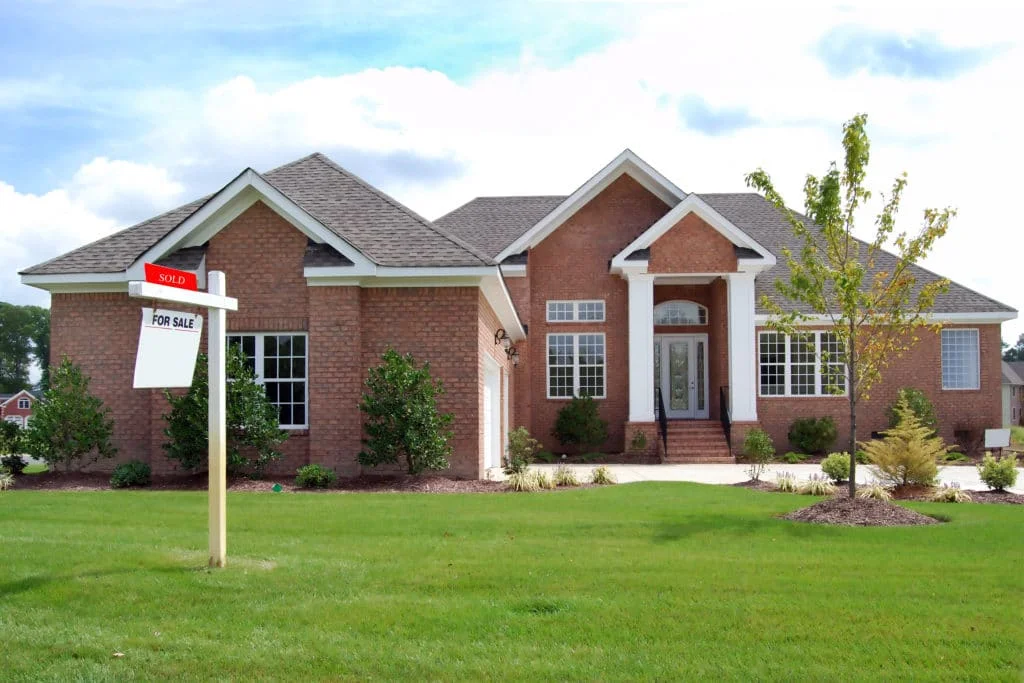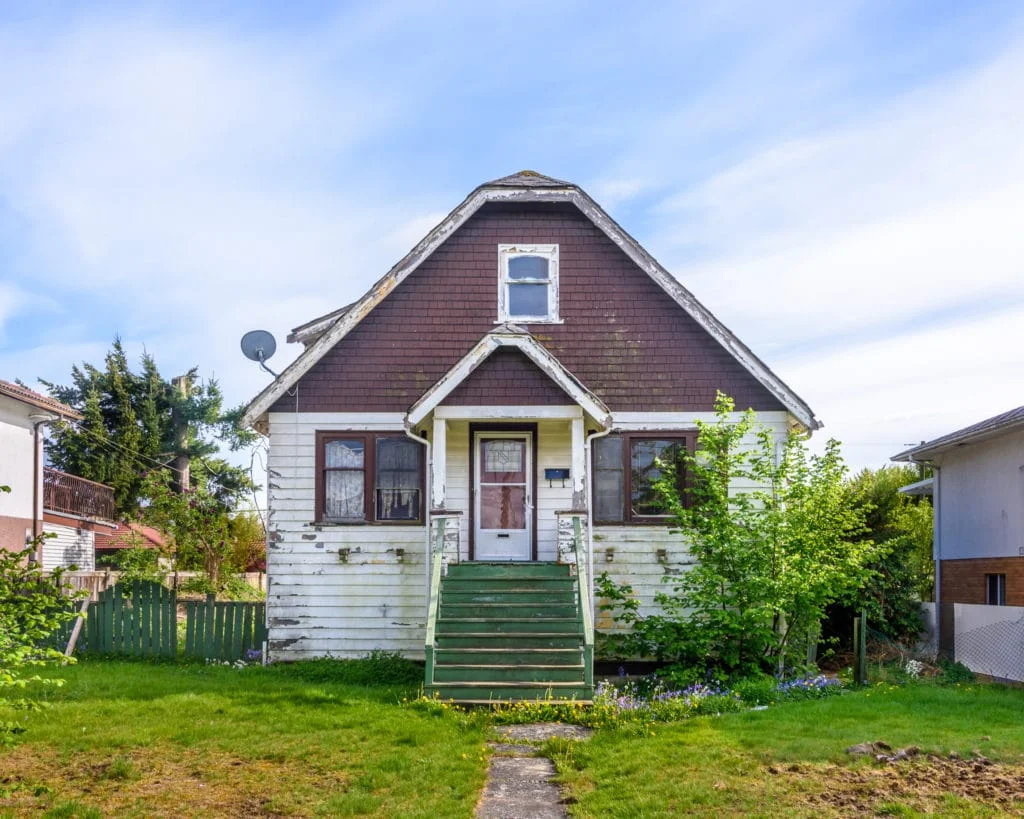Let’s face it — Selling your home can be a long, stressful process if you don’t know that an investor may pay for your house. So if you want to go straight filling out a quick form to get an experienced local agent to give you a cash offer, complete the short form here.
If you want to know how we here at HomeGo calculate our cash offer for your house so that you pay ZERO commissions and closing costs, click here.
If you’d like to learn more about the ins and outs of investors calculate how much they will pay for a property, then keep reading as we’ve broken it all down for you.
First, there’s the cleaning and the staging, then you’ve still got to make all those costly repairs. Once you list your home, the “fun” isn’t over. You’ve got to keep it ready to show at all times and be ready at a moment’s notice when a potential buyer wants to take a look. And the longer it takes to sell, the more stress you’ll feel.
That’s why it’s no surprise that so many homeowners wonder if they should sell to an investor. After all, selling to investors who want to buy houses can speed up the home sale process, and convenience is definitely a bonus.
Read on to learn about finding investors to buy your home and decide if selling to an investor is right for you.

It’s Important to Know More Than Just How Much an Investor Will Pay for Your House
We’re not going to leave you hanging. We will most certainly answer your most pressing question because that’s why you’re here.
But when asking how much will an investor pay for my house, it’s important to consider what it means to sell to an investor? Who are these people?
What do they do with the house or existing tenants? What are the advantages of selling to an investor? Disadvantages?
Exploring the answers to these questions will help you understand the value that real estate investors bring to you and the community — and most importantly, whether or not you, as a home seller, want to consider investors as potential buyers.
What Is a Real Estate Investor?
Real estate investors make at least some of their income by buying, rehabbing, managing, renting out, and/or reselling real estate. Some people do this as a “side-gig.”
So they work a regular job and then maybe buy one house a year on the side as an investment. Others make a living as real estate investors, so they may be buying many homes a year.
Often, they look for properties they can turn into rentals. Some investors buy properties to renovate, then sell for a profit. Others buy to grow equity and hold on to properties until they can cash in on the appreciation.
What Are the Pros & Cons of Selling to an Investor Over a Traditional Buyer?
When you need to complete your home’s sale, selling to investors can be an attractive option. We’ve already mentioned some of the hassles involved in a traditional home sale to an individual buyer.
That includes open houses, repairs, waiting, advertising, negotiating, and stress when the home doesn’t sell as quickly as you expected.

Pros of Selling to Investors
One of the biggest advantages of selling your house to an investor is that you can sell quickly. And in many situations, time is money when selling your home.
Selling to an investor means a quicker — and smoother — sale. Big plus: Not waiting around for months for potential buyers to make a decision.
Selling a home quickly helps you avoid extra mortgage payments, prevent vandalism in vacant homes, and pocket money you can use when and where you need it.
Yet another big advantage is saving money on repairs. You won’t need to make repairs or upgrades, which can be time-consuming and expensive.
You can also pass on staging your home or doing showings. Most investors won’t base their decision on your home’s curb appeal (or lack thereof).
To sell a home in a decent amount of time the traditional way, you will need to repair the home, stage it, and probably work with a high-power real estate agent. If the home is obnoxiously or dangerously outdated, you may need to bring it into the 21st Century.
But many people don’t have the time or money for this. You may be in an unwanted home-ownership situation because of an inheritance or recent job relocation. Now, you live on the other side of the country.
You may have lost your job, be on a fixed income, or be facing financial challenges that make it hard to pull money together to put into the home.
Many real estate investors have built their business models around helping homeowners in these kinds of situations get out of the home and move on. Reputable real estate investors can create win-wins where you feel good about selling your home to them.

Cons of Selling to Investors
So what are the downsides to consider?
Well, if you fix everything up and then wait for the right buyer, you could get a higher offer and closer to the sale price you really wanted. So a con would be missing out on getting more money.
Selling a home isn’t just a financial transaction. There’s an emotional element to it for sure. No one likes to think they let their house go for too little.
And we hate that FOMO (Fear Of Missing Out). But when you factor in what you save in repairs, real estate commissions, concessions, extra mortgage payments, etc., you often come out better.
So when asking how much will an investor pay for my house, it’s definitely good to look at the whole picture. We’re not suggesting that you take a low ball offer. You deserve to get paid a fair price. But it’s important to do the math.
Another con? Investors aren’t always licensed, real estate agents. Because most investors tend to be individuals, not companies, you may have a hard time finding reviews. So it’s hard to know whether or not you can trust them.
What Do Real Estate Investors Do to the Home?
This depends on the type of investor, their investment strategy, business model, the home’s condition, and what’s happening in the local market. Here are some likely possibilities.
1. Fix It Up and Rent It Out
Some investors buy and hold. They believe that the home will appreciate over the next 10 years or so, so they’re paying for something now to earn that appreciation.
In these cases, they’ll usually invest in a quality renovation and then rent it out to get some income coming in.
Around 44 million homes in the US are currently being rented. That’s more than half of the households who live in homes they own are purchasing with a mortgage.
Rentals provide tremendous benefit to communities because many people aren’t ready to buy and live in the same place long term. Short-term homeownership is very expensive if you have to get a mortgage because you’re essentially just paying interest for the first 10 years.
So renting makes good financial sense for people who aren’t ready to settle down in one place.
But being a landlord is harder than it looks. The average home seller really doesn’t want to take that on. So investors can serve this function, making affordable rental housing available in communities.
2. Fix It Up and Flip It
You’ve probably also heard of flippers or watched TV shows like Flip or Flop. House flippers, also call rehabbers, buy homes that are in disrepair. They often invest $25,000-$50,000 or more in fixing it up, and then they flip it. And the math looks something like this when they’re successful.
Repair costs + holding costs + cash they paid you + some profit to make it worth their while
House flippers help revitalize communities because they purchase homes from people who may not have the money to replace the roof or keep the house looking nice. Home in disrepair in a neighborhood brings everyone’s home value down.
So investors are not just helping a seller get out of the house they need to sell. Investors invest in communities and help the whole neighborhood.
3. Replace It with a New Home
Now, sometimes even houses that look nice need repairs that would exceed the sale price value. When a car is in a car accident and the repairs exceed the car’s value, we say it’s totaled. Houses can get totaled too. It just happens over time.
It wouldn’t make financial sense to fix it up, so they demolish it and replace it with another home.
This is not a decision investors take lightly because it’s sad to see a home get demolished, but sometimes this is the best thing for both the home seller and the neighborhood that will have a nice new home to look forward to.

4. Act as Wholesalers
Other home investors act as wholesalers. They purchase several properties in an area for cash. They then sell them to their trusted pool of investors who want to rehab and rent it out, rehab and flip it, or replace it.
Can an Investor Make Me a Cash Offer?
Yes, real estate investors will often make cash offers. This is one of the reasons they can get deals done more quickly.
The typical homebuyer would be waiting on a mortgage company, setting up the escrow, and getting inspections.
When you sell to an investor, you often get to skip all that and get cash for your home. This is not always the case, so be sure to ask.
Will an Investor Buy Houses in Foreclosure?
Investors often buy homes that are already foreclosed on (owned by the bank) or facing imminent foreclosure. The fact that they can buy quickly in cash means they can help homeowners beat deadlines to prevent the foreclosure from going through.
When a foreclosure happens, you not only lose your equity, it will be 10 or more years before you’ll be able to restore your credit. So selling to the investor before foreclosure is usually a smart move.
What if I Have a Lien or Judgment on My House?
It depends on the investor. Some investors will avoid buying your home. But others will simply factor the cost of the lien into the price.
So when figuring out how much will an investor pay for your house, you’ll need to subtract the judgment amount since the lien will follow homeownership and it will now be the investor’s responsibility to pay it off.

When Investors Purchase Rental Properties, What Do They Do with My Tenants?
Sometimes people with rental properties decide it’s time to get out of the game. Maybe they never wanted to be a landlord in the first place. Or maybe they didn’t really how much work it can be.
Some investors don’t mind buying houses that already have tenants. They’ll honor the existing lease agreement.
And as long as the renters are paying the rent on time, all good. A house that already has reliable renters living there will be a bonus to some investors.
Will a Real Estate Investor Require an Inspection?
Some real estate investors will use the inspection against you. They make what seems like a firm offer based on their walk-through. You tell them everything that’s wrong with your house upfront.
Then that same thing comes up on the inspection. And they use it as an excuse to lower the offer. You’ve already invested time and maybe money into this deal, so you feel compelled to follow-through.
Experienced real estate investors who have a good reputation will not play these games. They do their due diligence, listen when you discuss possible issues and understand the value so they can make a fair offer they’re willing to stand behind.

How Fast Can These Home Buyers Complete the Transaction?
Some individual real estate investors, especially those new to investing, may be going through financing. That means that it may take 30-45 days to close the deal.
But if the investor is a cash buyer, they can often complete a walk-through and finalize the transaction in as little as a week or two.
Are There Any Closing Costs, Fees, Etc.?
There should not be any closing costs, commissions, or fees associated with selling to an investor. However, if you have an exclusive contract with a real estate agent, you may owe them something.
For that reason, it’s a good idea to consider whether selling an investor makes the most sense for you before working with a seller’s agent.
If you already have a seller’s agent, you may want to discuss your obligation to them because they have done work for you and it’s only fair that they get paid something even if you found the buyer.
Here’s how to break up with your real estate agent the right way.
How Much Will an Investor Pay for My House?
When asking yourself if you should sell to an investor, you need to know how much they’ll pay and why. Remember that investors tend to recognize when a property offers a good value to them–and when it doesn’t. People invest in things because they believe they can make more when they sell them than they paid for them.
Predatory investors try to low-ball home sellers who don’t know what their home is really worth. But reputable investors don’t make money by ripping people off.
They understand how to create win-win situations for themselves and you, the home seller.
They choose homes that they can fix up cost-effectively to add value to the house and the neighborhood. And they make a profit at the same time. Or at least that’s the goal.
In general, investors buy homes as-is, not market-ready homes. That means the purchase price may be a bit lower than you’d expect on the market.
Remember, you’ll save money by not making repairs or upgrades. Plus, you saved time and got added convenience.
To find the actual dollar amount, you will typically need to invite the investor out to your home for a quick inspection and discussion about the home.
There are many factors that play into the actual amount an investor is willing to offer for your home.
If you would like to get a same-day offer, schedule a walkthrough with us today.
Do Investors Pay Fair Market Value?
Fair market value is what someone is willing to pay for something on the open market. A home’s condition is a major factor in fair market value.
An as-is home won’t have the same price point as a completely renovated home, even if the homes are otherwise very similar in age, style, size, location, etc.
If you see homes in your neighborhood selling for half a million or a million (based on where you live), that doesn’t mean your home’s fair market value is comparable.
Your fair market value will be based on its current as-is condition. So yes, investors do pay near fair market value when you consider its as-is condition.
![]()
How do Investors Calculate an Offer?
While every investor has their own approach, most do two things:
- Consider sales of comparable homes in the area
- Estimate the time and money needed to make the home ready to sell
Investors don’t have to be licensed professionals. That means they don’t always have access to the same resources — or have the same expertise — like real estate agents.
That said, you may try to negotiate a better price using the following tips:
- Leave your emotions at the door. Focus on the facts and the numbers to make the smartest financial decision for you and your family
- Tell a compelling story
- Use data to back up a realistic top price. Do a little math to figure out how much it costs per month to hold the house. What will it cost to get it to a market-ready condition? What’s the value of convenience and getting cash in hand now?
Use the 70% Rule to Estimate a Ballpark Price
There is no set in stone answer to how much will an investor pay for my house because every home and situation is a little different. But knowing about the 70% rule of real estate investing will give you a ballpark idea about how much investors might pay.
This gives you a little something to work with. Understanding the 70% rule puts you on an even playing field with the investor, so you don’t feel intimidated.
Many investors use the 70% rule to identify whether your home will be a good investment for them.

This rule states that they need to pay no more than 70% of what they can sell it for once they fix it up and sell it for a move-in ready full market price for an investment to be worth their while. They call the estimated final sale price the After Repair Value (ARV).
70%? What? Now, before you write this off, hear us out.
When you think about how much it would cost to update your kitchen and bathroom, re-wire the electrical, or re-shingle the roof, all while making more mortgage payments, this 70% figure actually makes a lot of sense for many home sellers.
And these are the investments that investors are looking for.
On the other hand, if your home has been recently renovated, it is in fairly good condition and is highly marketable. You have time to wait for it to sell the traditional way, then selling to a real estate investor may not be your best option because you’re not in a place where selling for around 70% would make sense.
Look! We’ll be the first to tell you. We want home sellers to feel good about their decision to sell to us because that’s how we like to do business, the honest, people-first kind of way.
We make non-obligation offers on as-is homes, but the decision is always up to you. No pressure. We mean that.
We’ve built a reputation of honesty, integrity, and fast cash payments. You can check out our reviews over at the Better Business Bureau.
Does it Make More Sense to Sell to a Company like HomeGo?
Though selling your home to an investor offers some advantages, selling to a company like HomeGo provides the best of both worlds. HomeGo buys homes quickly, giving you a transparent offer on the spot. Best of all, we’ll buy your home as-is, so you don’t have to worry about (or pay for) repairs.
All HomeGo agents work under state-regulated contracts for your protection. Plus, unlike when you’re selling to an individual investor, HomeGo has plenty of reviews and Better Business Bureau accreditation. When you want a quick, easy sale, we believe there’s no better alternative.




